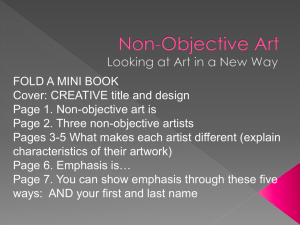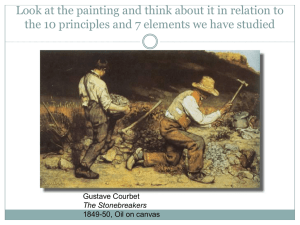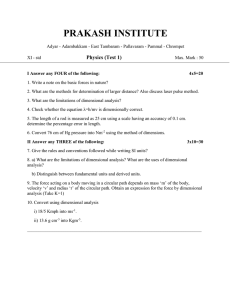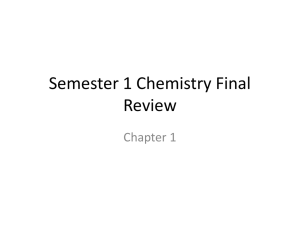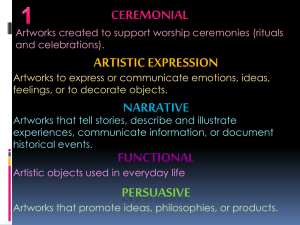Introduction to Art 2 Week Length of Unit Standards
advertisement
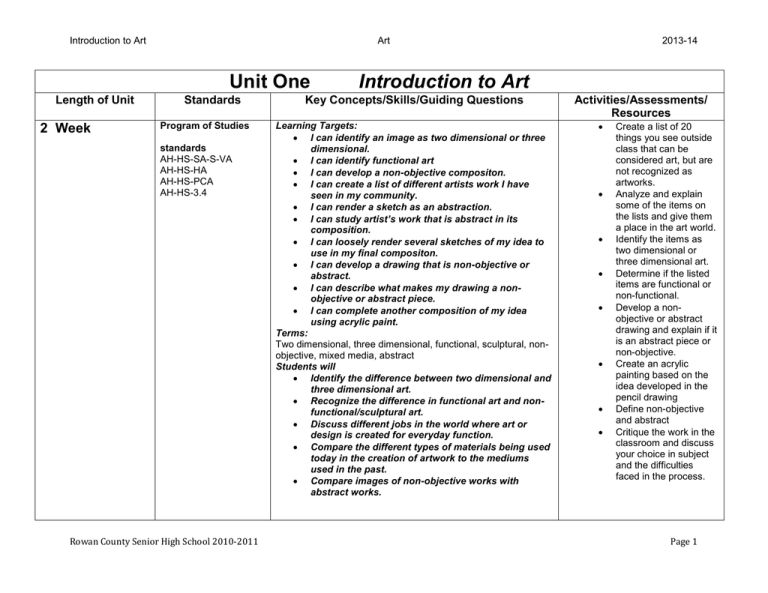
Introduction to Art Art Unit One Length of Unit 2 Week Standards Program of Studies standards AH-HS-SA-S-VA AH-HS-HA AH-HS-PCA AH-HS-3.4 Rowan County Senior High School 2010-2011 2013-14 Introduction to Art Key Concepts/Skills/Guiding Questions Learning Targets: I can identify an image as two dimensional or three dimensional. I can identify functional art I can develop a non-objective compositon. I can create a list of different artists work I have seen in my community. I can render a sketch as an abstraction. I can study artist’s work that is abstract in its composition. I can loosely render several sketches of my idea to use in my final compositon. I can develop a drawing that is non-objective or abstract. I can describe what makes my drawing a nonobjective or abstract piece. I can complete another composition of my idea using acrylic paint. Terms: Two dimensional, three dimensional, functional, sculptural, nonobjective, mixed media, abstract Students will Identify the difference between two dimensional and three dimensional art. Recognize the difference in functional art and nonfunctional/sculptural art. Discuss different jobs in the world where art or design is created for everyday function. Compare the different types of materials being used today in the creation of artwork to the mediums used in the past. Compare images of non-objective works with abstract works. Activities/Assessments/ Resources Create a list of 20 things you see outside class that can be considered art, but are not recognized as artworks. Analyze and explain some of the items on the lists and give them a place in the art world. Identify the items as two dimensional or three dimensional art. Determine if the listed items are functional or non-functional. Develop a nonobjective or abstract drawing and explain if it is an abstract piece or non-objective. Create an acrylic painting based on the idea developed in the pencil drawing Define non-objective and abstract Critique the work in the classroom and discuss your choice in subject and the difficulties faced in the process. Page 1 Introduction to Art Art 2013-14 Guiding Questions Rowan County Senior High School 2010-2011 What are some of the things you see outside this classroom that might be considered art, but maybe not recognized as artwork? Explain how the creation of a custom chopper/motorcycle might be considered art why/why not? What are your feelings about “mass production” artworks like those labeled Thomas Kinkade? What are your feelings about graffiti artists or sidewalk art that is only viewable for a short time? Since we’ve started this discussion, how have your views on artwork and what can be considered art changed? Do you understand what can be considered an abstraction? Can you explain “non-objective” art? Page 2
